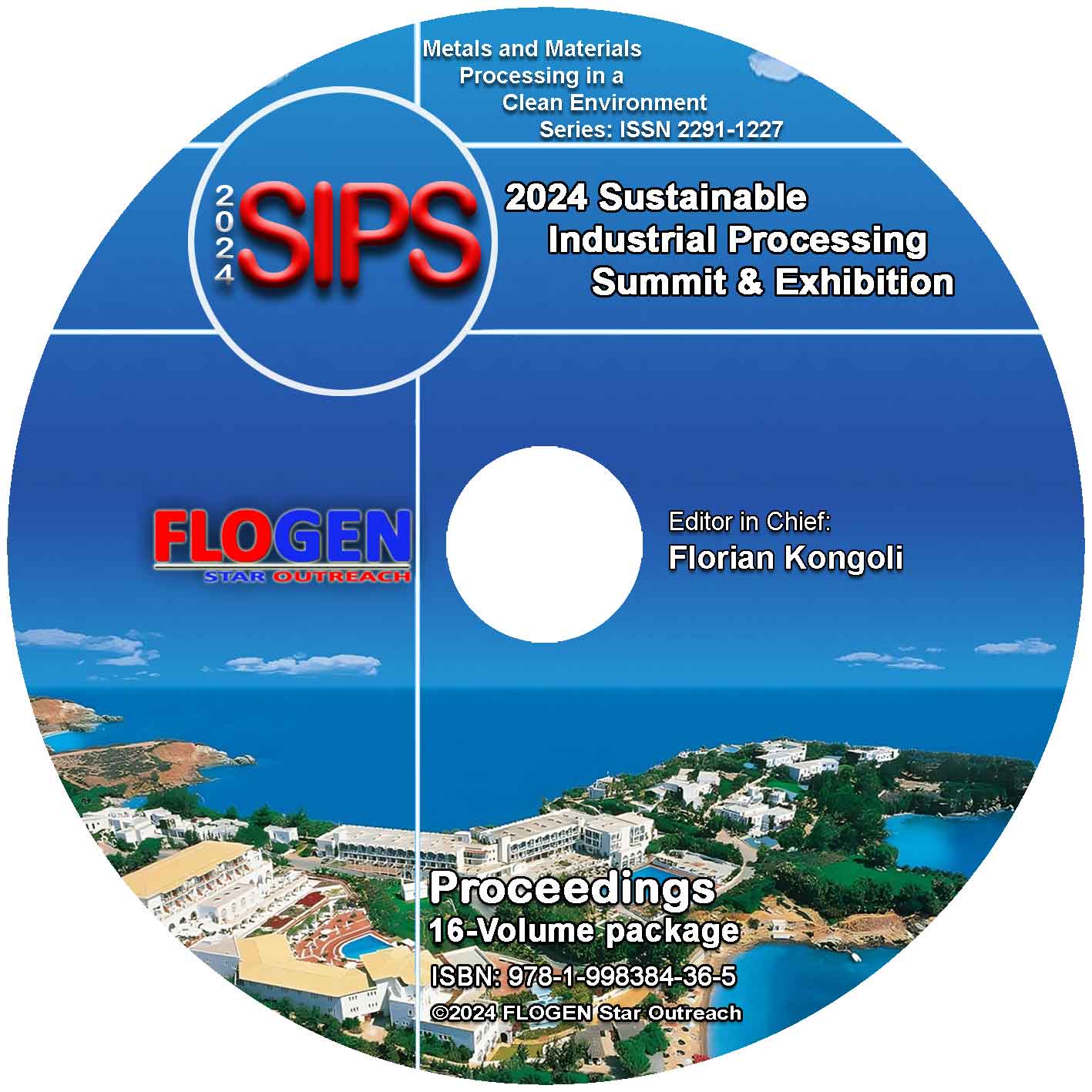2024 - Sustainable Industrial Processing Summit
SIPS 2024 Volume 11. Rowlands Intl. Symp / Mathematics
| Editors: | F. Kongoli, A. Bountis, M. Johnson, S. Karam, L. Kauffman, P. Mandell, M. Mikalajunas, W. Miller, G. Ord, R.M. Santilli, E. Suhir, E. Trell, T. Vougiouklis |
| Publisher: | Flogen Star OUTREACH |
| Publication Year: | 2024 |
| Pages: | 372 pages |
| ISBN: | 978-1-998384-24-2 (CD) |
| ISSN: | 2291-1227 (Metals and Materials Processing in a Clean Environment Series) |

CD shopping page
SOLUTION OF THE MILLENNIUM PROBLEM CONCERNING THE NAVIER-STOKES EQUATIONS - PART 2
Alexander Ramm1;1KANSAS STATE UNIVERSITY, Manhattan, United States;
Type of Paper: Plenary
Id Paper: 529
Topic: 38
Abstract:
The Navier-Stokes problem in ℝ3 consists of solving the equations:
where v = v(x, t) is the velocity of the incompressible viscous fluid, p = p(x, t) is the pressure, the density ρ = 1, f = f(x, t) is the force, v0 = v0(x) is the initial velocity.
The aim of this talk is to explain and prove the author’s result concerning the Navier-Stokes problem (NSP) in ℝ3 without boundaries.
It is proved that the NSP is contradictory in the following sense:
If one assumes that the initial data and the solution to the NSP exists for all t ≥ 0, then one proves that the solution v(x, t) to the NSP has the property v(x, 0) = 0.
This paradox (the NSP paradox) shows that:
The NSP is not a correct description of the fluid mechanics problem and the NSP does not have a solution defined on all t ≥ 0.
In the exceptional case, when the data are equal to zero, the solution v(x, t) to the NSP exists for all t ≥ 0 and is equal to zero, v(x, t) ≡ 0.
The results, mentioned above, are proved in the author’s monographs [1], [5] and paper [3].
Our results solve the millennium problem concerning the Navier-Stokes equations, see [5].
These results are based on the author’s theory of integral equations with hyper-singular kernels, see [2], [4].
In paper [6], p.472, Theorem 2, there is a statement that, for f(x, t) = 0 and u0(x) sufficiently small, the solution to the NSP exists for all t ≥ 0 if m ≤ q, where m is the dimension of the space and the solution is in Lq. In our case m = 3 and q = 2, so the condition m ≤ q does not hold. Therefore, the claim in [6], p. 472, is not applicable in our case.